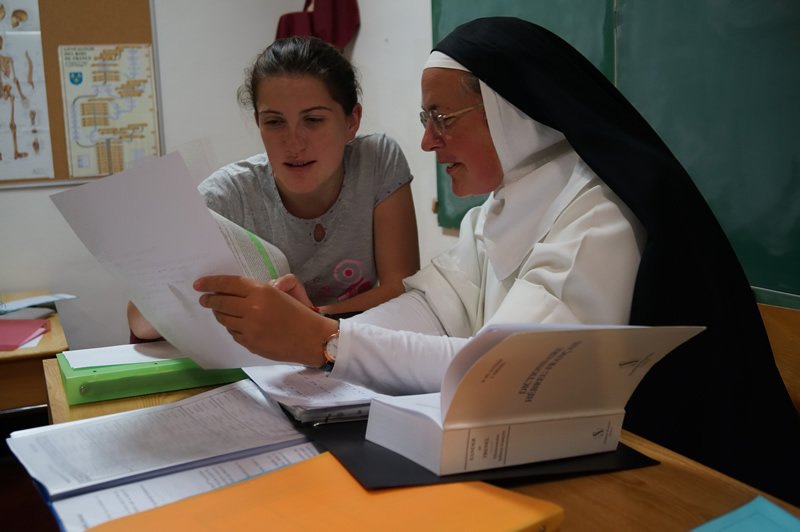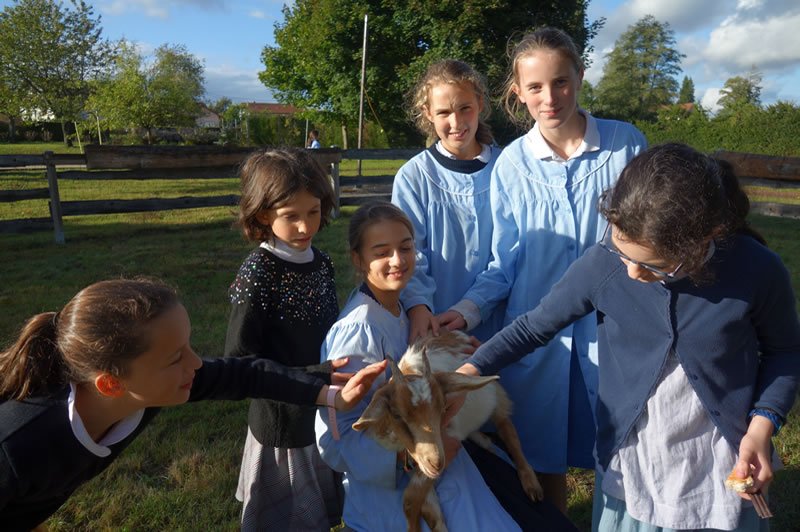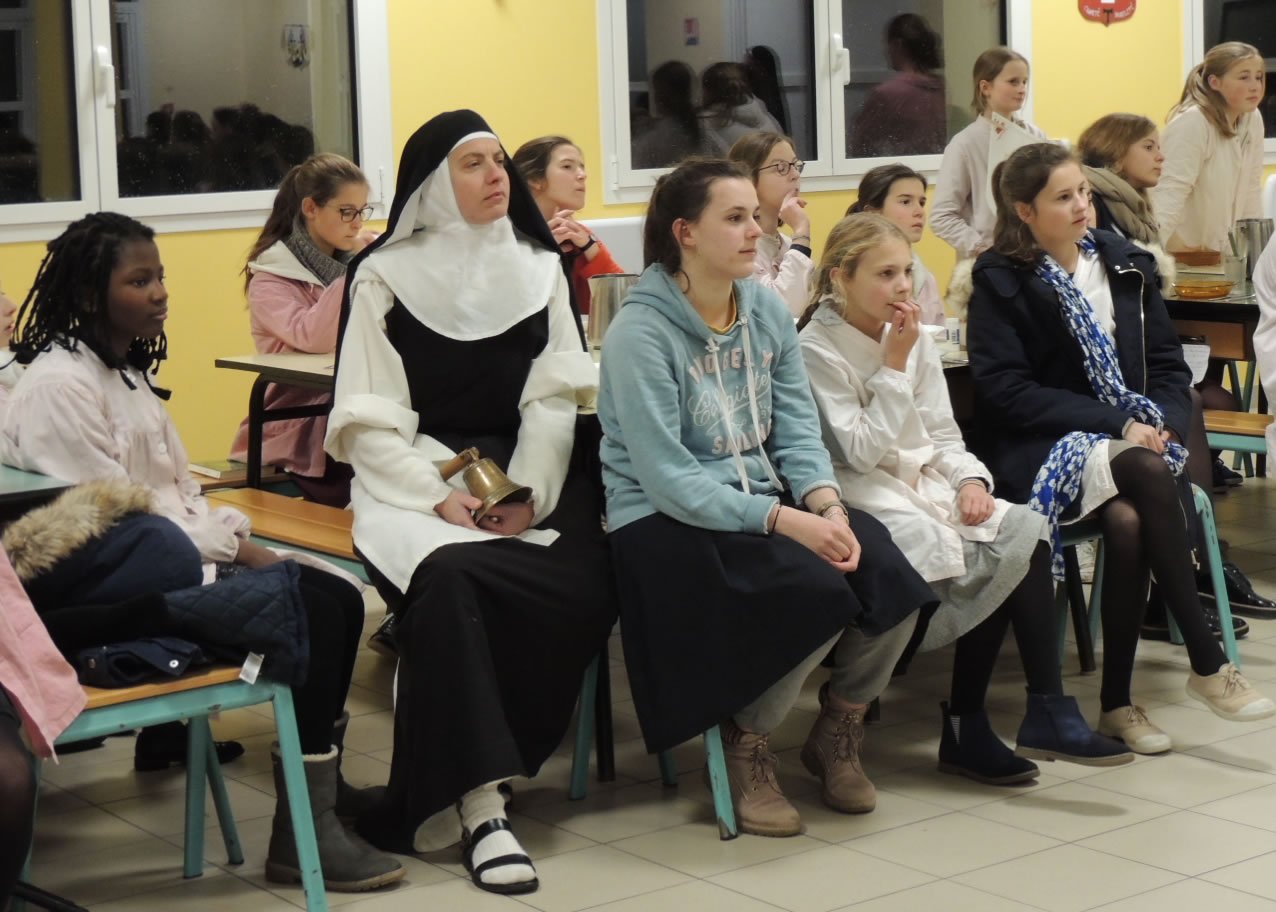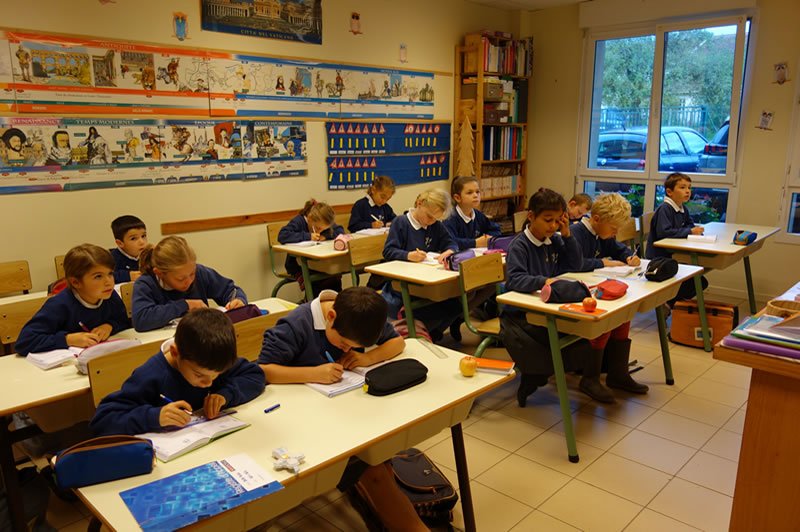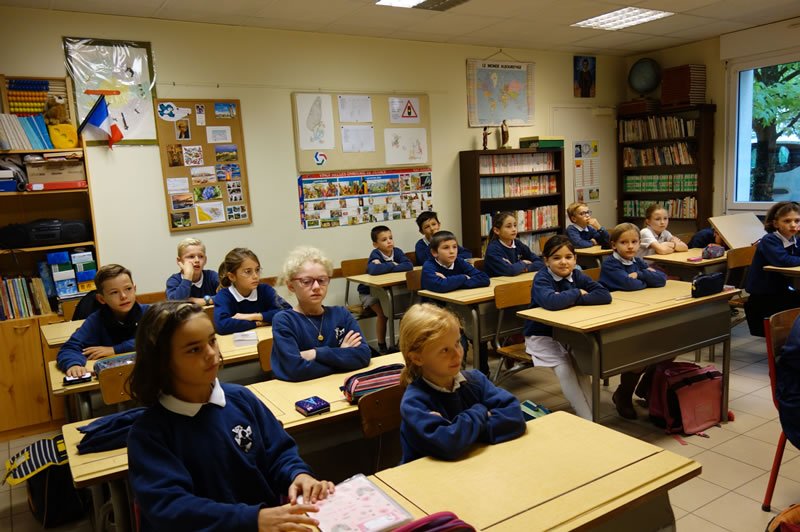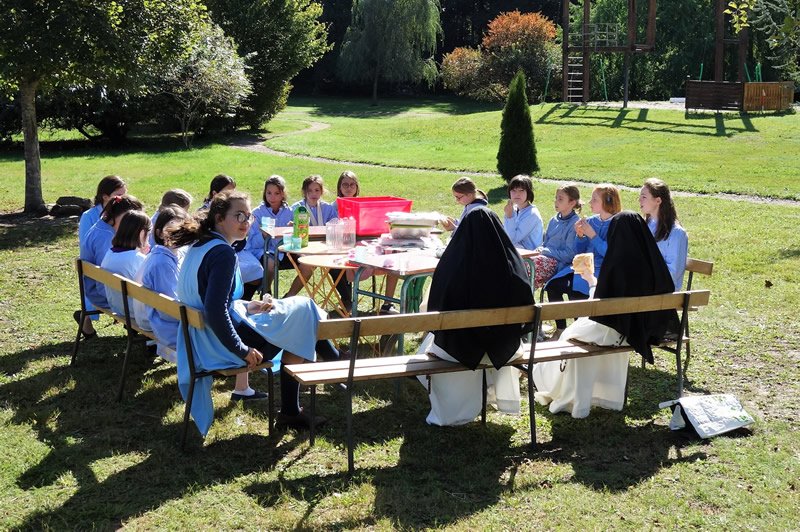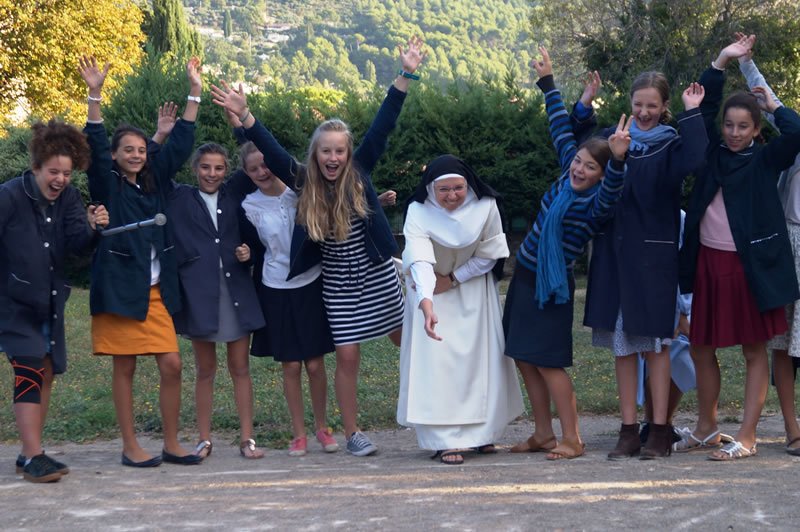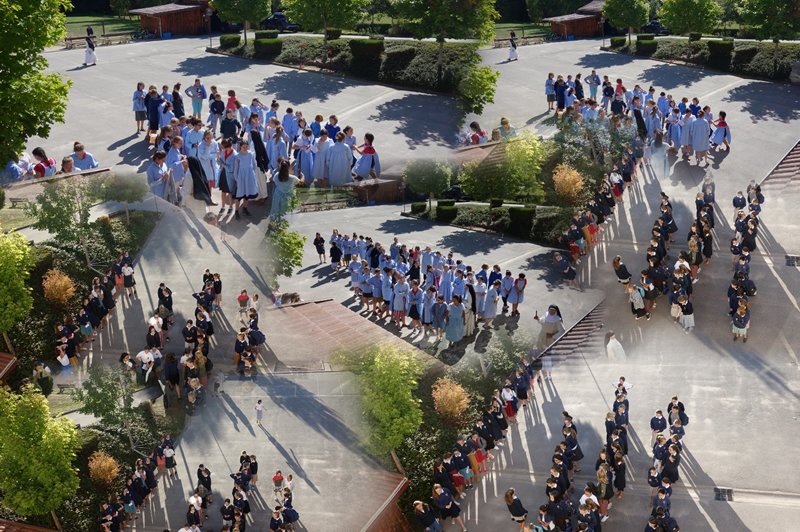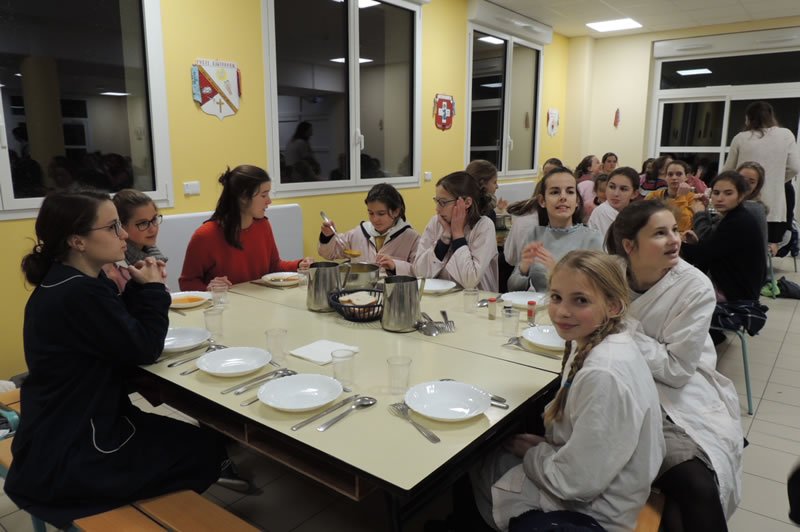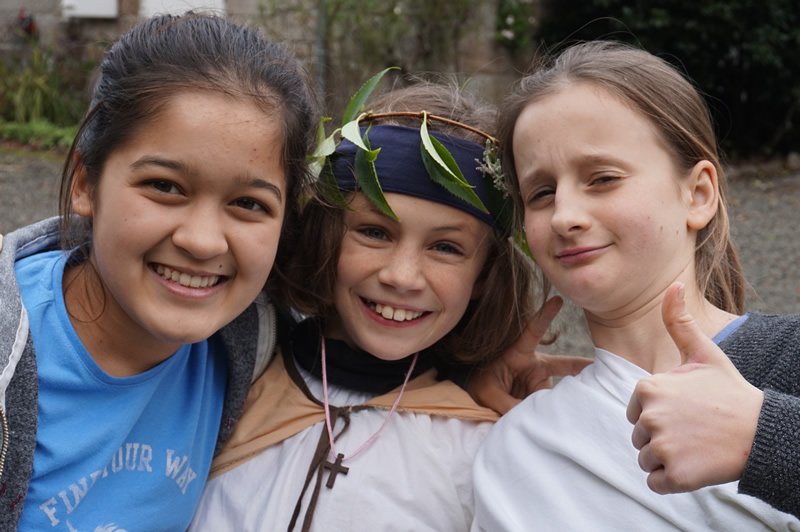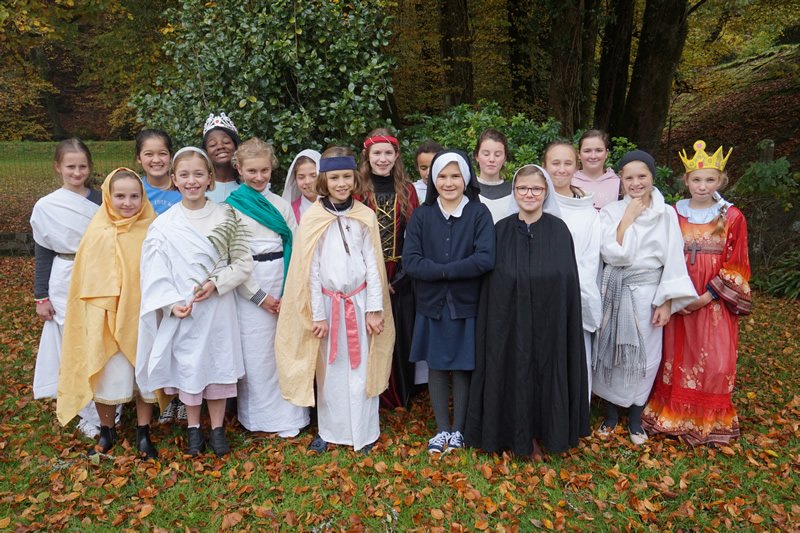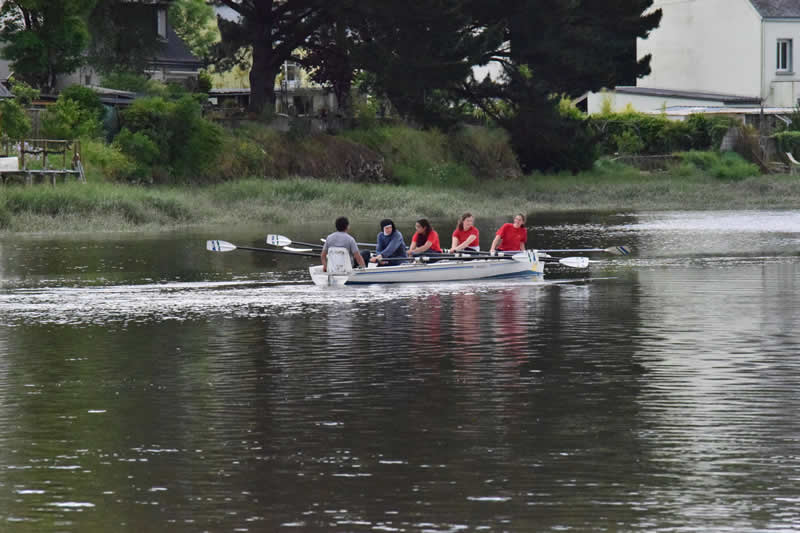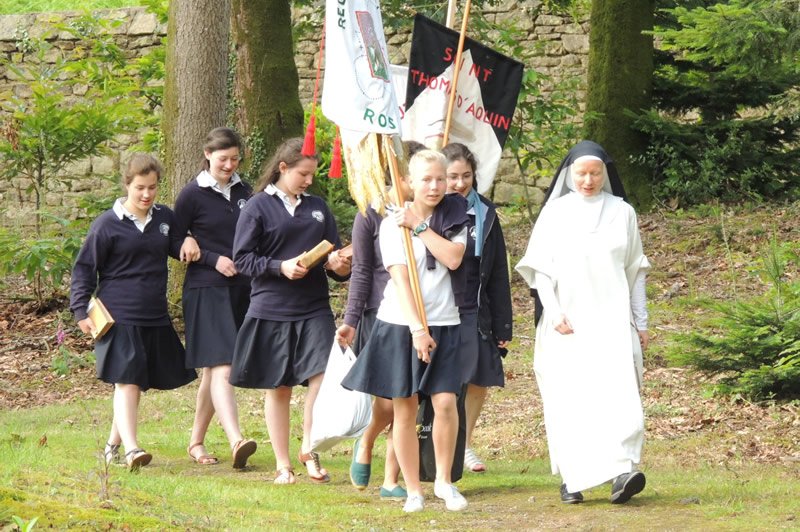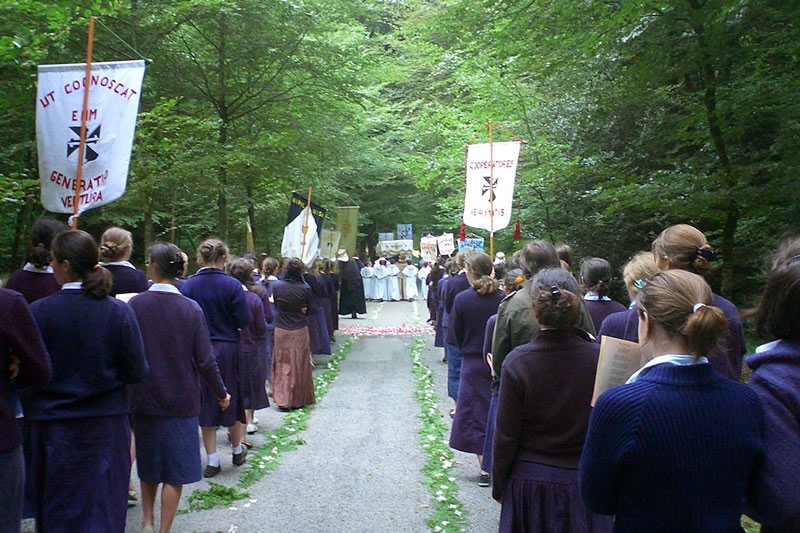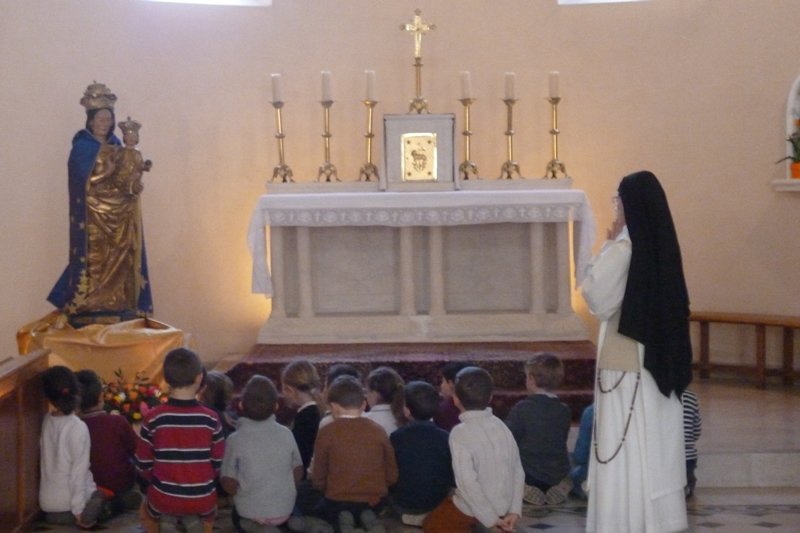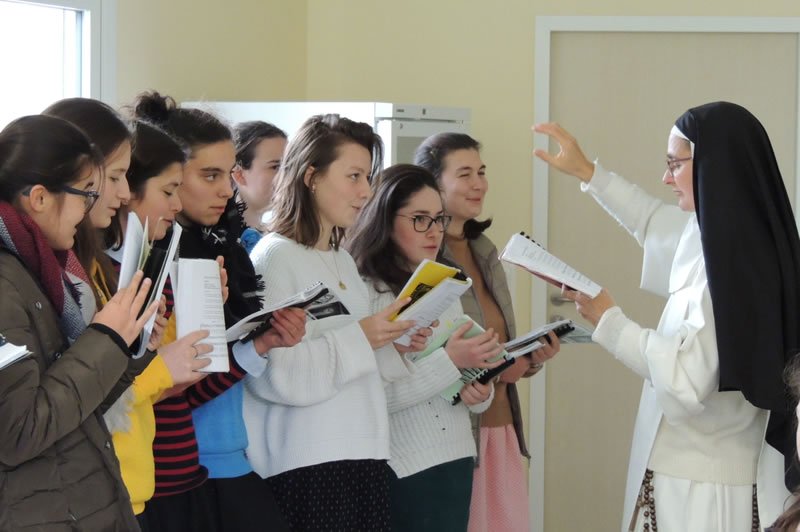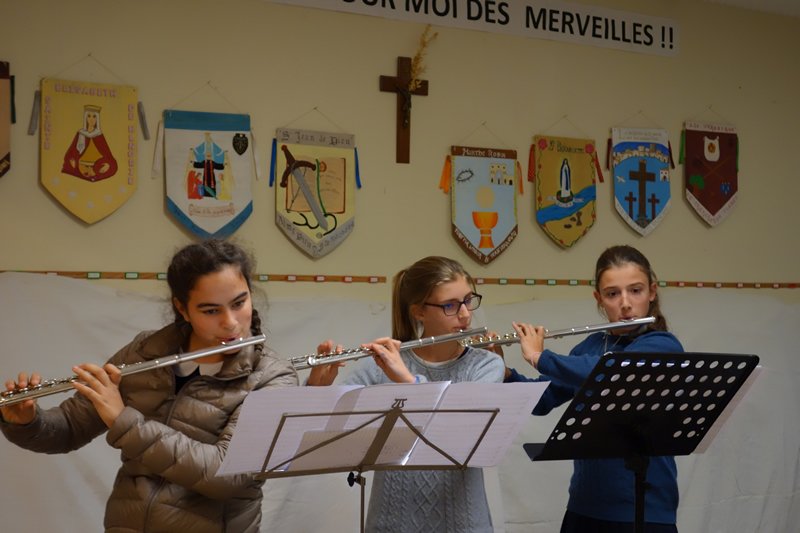A Catholic Education
Saint John Paul II.
Our schools are open to all.

«Form the intellect, mould the character and fortify the heart.».
Abbé Berto
The Dominicaines du Saint-Esprit currently run five schools in France, in the dioceses of:
- Vannes (Saint-Thomas d’Aquin),
- Nanterre (Saint-Pie X),
- Nantes (Sainte-Catherine de Sienne),
- Fréjus-Toulon (Saint-Joseph) et
- Saint-Dié (Saint-Dominique),
They were all opened at the request, or with the kind support of the bishops of the diocese.
- Transmit the faith
- Form the mind and intellect
- Teach the practices of liberty and responsibility
This is all achieved :
- in strict collaboration with the parents, who are the child’s primary educators
- in conformity with the pedagogical principles of the Church,
- in accordance with the charism of their founder, Saint Dominic, who dedicated his life to the quest for the truth, and the promotion of freedom and true brotherhood.
Transmitting the faith

“Works relating to the transmission of the truth, to the education of young people, and to the development of a devotional liturgy are the very highest goals of the Institute.”
Constitutions of the Dominicaines du Saint-Esprit
In the schools run by the Dominicaines du Saint-Esprit, the strengthening of the interior life is fostered through a knowledge of Christ, through a reading of the Gospels and teaching the faith, by the formation of a life of prayer, the practice of a sacramental life, and by participation in the Mass according to the Extraordinary Form.
The transmission of Christian doctrine, in keeping with the teachings of the Church, penetrates and transcends all other scholarly disciplines.
The great desire of the Dominicaines du Saint-Esprit is that the Word of God should be the way of life, the point of reference and the main director of the thoughts and actions of all their pupils.
Intellectual formation
Trusting in the capacity of each pupil to grasp the truth, the teachers aim to give their pupils a solid intellectual framework, and a spirit of objectivity.
Pupils are encouraged to think for themselves, to develop a critical faculty, without hesitating to debate their ideas with others.
An attentive, supportive atmosphere helps pupils to organise their work and acquire and develop good habits of learning.
Priority is given to literature and philosophy, in order to teach the pupils to ask the right questions, to grasp difficult issues, to think in an orderly manner, to appreciate the subtleties of a subject, to express themselves elegantly in writing and to reason clearly.
learning the exercise of freedom and responsibility
Pupils learn to choose the good, the true and the beautiful in an atmosphere of confidence, kindness and enthusiasm. In this way, they move progressively towards the exercise of a greater freedom, towards a profound joy in their lives, in preparation for the responsibilities of adulthood.
Learning the exercise of freedom goes hand in hand with the formation of the will, the character and the heart. A caring yet firm authority ensures an atmosphere of order and peace, leaving plenty of room for spontaneity.
The common good, a sense of responsibility and a spirit of initiative are fostered by the daily life of the school.
An exposure to beauty is a vital component of an introduction to the truth. Pupils develop their talents by participating in many different activities – art, theatre, singing, public speaking competitions…
Pupils learn to use their talents for the service of others, in many different situations, for example visits to retirement homes, where they bring some of their youth and liveliness to the elderly and disabled.
The school also encourages social and cultural outings, thereby giving pupils a sense of civic responsibility.

